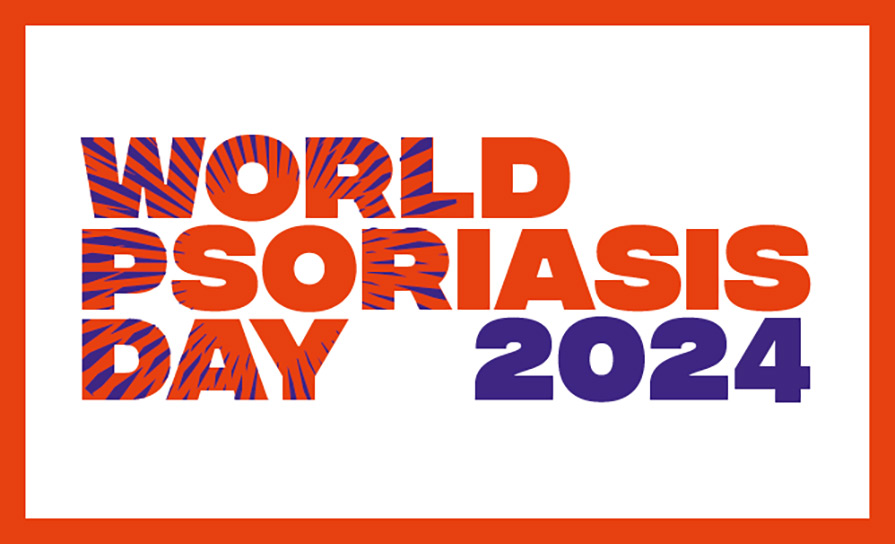Each year on World Psoriasis Day the International Federation of Psoriasis Associations (IFPA), and its national and regional psoriasis organisation members, join together to raise awareness of psoriasis, estimated to affect approximately 73,000 people in Ireland.
The theme of World Psoriasis Day 2024, which takes place on 29 October, is ‘Family’. “We often think that the burden of disease is almost exclusively on the person living with the disease, but the family is also impacted to a high degree. Most practical challenges are shared between the family members and invariably change the family routines and habits,” said the IFPA in its report on psoriasis and the family.
In this report, the IFPA highlights the important role of the family, caregivers, and partners, also known as the ‘greater patient’, in the life of those affected by psoriasis . Family and partners not only have an emotional support role, but also help with everyday tasks and treatment.
These include an increase in the housework load, such as laundry, cleaning, and vacuuming, as well as the need to brush oneself before leaving the house to remove flakes from the clothes. Family members report feeling particularly frustrated with these chores ahead of having visitors, in an attempt to have a clean and welcoming home. Another important change in the lifestyle of the family unit is related to leisure activities and holiday planning. They reduce or completely avoid going to the gym or swimming pools, not only because it may worsen the skin flares, but also because they do not feel welcomed by other patrons. The holiday planning is also affected, from choosing a destination that works for the family and the member with psoriasis and can be coordinated with hospital visits, treatments, or flaring episodes if needed.
Siblings of people living with psoriasis, particularly of children with psoriasis, reported feeling neglected and jealous, as the parents spend more time caring for the sibling with psoriasis, for example, helping to apply creams or lotions and administering other treatments, or by having to take them to doctor appointments or the hospital.
The toll on mental health of family members results in a general feeling of anxiety, worry, sadness, and frustration – impacting sleep, mood, and personal relationships. Social life is often severely affected by living with someone with psoriasis, as relatives refrain from hosting events at home or going to social events and they need to spend time looking after the needs of the person living with psoriasis. The worry about what other people think and the unwanted attention or staring by others are also important reasons to make people avoid social events.
Another important part of the household life affected in families with someone living with psoriasis is the family economy. On the one hand, depending on the severity of the psoriasis and the toll on the person’s wellbeing, it is often necessary for those in the household to take time away from work and even refrain from career changes or progression. On the other hand, the increase in household expenses related to the costs of treatments and hospital visits also has a significant impact on the family budget and economic wellbeing, especially in countries where there is no universal health coverage.
Importantly, the family and person with psoriasis quality-of-life index scores are correlated and interestingly the link can be bidirectional: Not only the person with psoriasis can affect the family, but reports also showed that a positive and supportive family positively impacts the wellbeing of the person with psoriasis. It is then essential to give family members the tools and knowledge to address the challenges of living with psoriasis, said the IFPA. A psychologically-healthy family unit provides the best emotional cushion for the person with psoriasis and vice versa.
Irish input
The Irish Skin Foundation (ISF), which promotes World Psoriasis Day as a partner of the IFPA, has a range resources available for people living with or caring for someone with psoriasis and/or psoriatic arthritis including information booklets, psoriasis information page, and GP and hospital visit guides to help prepare people for their appointment with their healthcare professional.
The ISF’s Ask-a-Nurse Helpline, run by dermatology nurses, provides free specialist guidance to people struggling to manage skin conditions.
To mark World Psoriasis Day in 2023, the ISF launched a new set of information video resources for people living with or caring for someone with psoriasis and psoriatic arthritis.
The ISF psoriasis videos include a talk entitled, ‘Psoriasis in 2023’, presented by Prof Brian Kirby, Consultant Dermatologist, St Vincent’s Hospital, Dublin, and a panel discussion on psoriasis with Prof Kirby; Dr Carl Orr, Rheumatologist, St Vincent’s Hospital; and former ISF board member, Ms Caroline Irwin, who has been living with psoriasis for over 50 years.
The video resources, recorded at the ISF skin health event SkinSideOut on 22 April 2023, offer tips on self-management; include guidance on the associated co-morbidities of psoriasis and highlight new developments in care and treatment.
For those affected by scalp psoriasis, Carmel Blake, Advanced Nurse Practitioner in Dermatology and Clinical Manager of the Ask-a-Nurse Helpline, delivered a talk on this common aspect of the condition, affecting up to 80 per cent of people with psoriasis. The video includes a ‘how to’ session and practical guide on how to treat the condition.
See www.irishskin.ie for more information.













Leave a Reply
You must be logged in to post a comment.